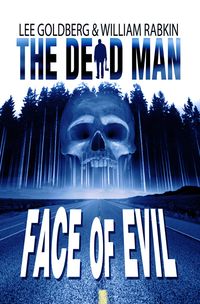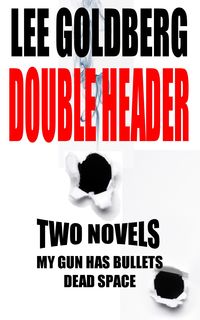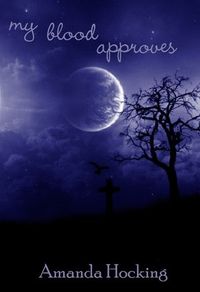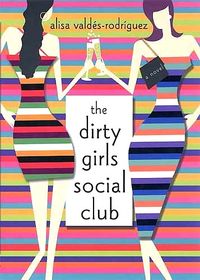Month: February 2011
THE DEAD MAN Free Advance Reading Copies
 I loved those men's "action adventure" series novels of the 60s, 70s, and 80s… like THE DESTROYER, MACK BOLAN and THE DEATH MERCHANT. Those series are virtually extinct now…
I loved those men's "action adventure" series novels of the 60s, 70s, and 80s… like THE DESTROYER, MACK BOLAN and THE DEATH MERCHANT. Those series are virtually extinct now…
…which is why I've teamed up with eight other writers on THE DEAD MAN, an original ebook series of short novels that blends the horror of Stephen King's THE GUNSLINGER with the action/adventure of Don Pendleton's THE EXECUTIONER…
Matthew Cahill is an ordinary man leading a simple life…until a shocking accident changes everything. Now he can see a nightmarish netherworld of unspeakable evil and horrific violence that nobody else does…
For Cahill, each day is a journey into a dark world he knows nothing about…a quest for the answers to who he is and what he has become…and a fight to save us, and his soul, from the clutches of pure evil.
FACE OF EVIL, the first book in the series, was written by me & William Rabkin and will be released on February 20th, to be followed in coming months by more all-new adventures of THE DEAD MAN by some of the most talented and successful mystery, western, horror and scifi authors out there today, including Bill Crider, James Reasoner, Matt Witten, Joel Goldman, James Daniels, Burl Barer and David McAfee.
To generate word-of-mouth and reviews, I’d like email you a FREE COPY of the novel in whatever format you prefer (epub, PDF, prc). Here’s all you have to do:
1. Send me an email at lee@leegoldberg.com with the subject FREE DEAD MAN BOOK and give me your name and the address of your website or blog (don’t have one? That’s okay. Read on).
2. Agree to post a review, positive or negative (but with no spoilers!) on your blog, website, Goodreads page, Facebook page, or the Amazon listing for THE DEAD MAN in the next 60 days. (You don't have to buy the book on Amazon to review it there, you only need to have an account).
3. Email me a copy of the review or a link to the post.
We're going to stop at 150 copies, so if you're interested, you'd better hurry. If past experience is any indication, these copies will go very fast.
Double Header
 Now you can get both of my acclaimed "Charlie Willis" crime novels — MY GUN HAS BULLETS and DEAD SPACE — combined together in DOUBLE HEADER for just $4.99. That's two books, complete and uncut, for the price of one.
Now you can get both of my acclaimed "Charlie Willis" crime novels — MY GUN HAS BULLETS and DEAD SPACE — combined together in DOUBLE HEADER for just $4.99. That's two books, complete and uncut, for the price of one.
MY GUN HAS BULLETS
When Beverly Hills Police Officer Charlie Willis pulls over a speeding Rolls Royce hell-bent for Neiman Marcus, he's surprised to see Esther Radcliffe, the geriatric star of the TV series "Miss Agatha," behind the wheel. He's even more surprised when she guns him down and keeps on driving. A few hours later, he wakes up in the intensive care unit…to find a William Morris agent, a network president, and the head of Pinnacle Studios standing at the foot of his bed. They have a proposal for him: in exchange for conveniently forgetting who shot him, they'll make him the star of his own series, "My Gun Has Bullets." So Charlie trades in his real badge for a fake one…and so begins an uproarious but deadly romp through the wonderful world of TV make-believe…with real bullets.
"It will make you cackle like a sitcom laugh track. Goldberg keeps the gags coming right up to the end."-Entertainment Weekly
"A very funny novel…a pinch of Carl Hiaasen, a dash of Donald Westlake, and a heaping portion of avarice and inanity Hollywood Style. It's boffo!"– Booklist
DEAD SPACE
Ex-cop Charlie Willis handles "special security" at Pinnacle Pictures. His job: to protect the studio and its stars, to stop scandals before they explode, to keep the peace in the land of make-believe. When Pinnacle revives the cult, 1960s TV series "Beyond the Beyond" as the cornerstone of a fourth network, two powerful forces fight for control of the show-a talent agency that uses blackmail, torture, and murder to keep its clients on the A-list, and a homicidal legion of rabid fans led by an insane actor who thinks he's in outer space.
"[It] reads like a modern-day Alice in Wonderland set against the venal world of the TV industry. It's wonderfully revealing and uncannily accurate," Vancouver Sun (Canada)
"The novel's satiric slant is strong enough to have an effigy of Goldberg beamed into outer space at the next Star Trek convention," Los Angeles Times
"This sharp roman a clef goes where no Hollywood satire has gone before…it's a stingingly funny novel." -Entertainment Weekly
BONUS MATERIAL: This special Kindle edition includes a sample chapter from THE MAN WITH THE IRON-ON BADGE.
I'm doing this as an experiment. THE JURY SERIES compilation of my four vigilante novels widely outsells the books individually. So I figured that since MY GUN HAS BULLETS, one of my best-selling books, sells far better than DEAD SPACE, its sequel, this might be the perfect way to maximizes sales of both. I'll let you know how it goes.
Dumb Stock Question
I have a dumb question for anyone out there who knows about stocks. I was just going through some old papers and discovered a stock certificate in my name for one share of Libby, McNeill & Libby that, apparently, my grandparents purchased for me the day I was born. From what I can tell, Libby was bought out by Nestle in the 1970s. The stock is actually in my late mother's name as custodian for me under the California Gifts to Minors Act. Is my one share worth anything? If so, how do I go about redeeming it?
The Fall of the Paper Curtain
 This week marked an astonishing turning point in the publishing industry. USA Today published it's usual list of the top 150 bestselling books…but for the first time, they included self-published work in their calculations. Kindle Nation founder Stephen Windwalker calls it the "fall of the Paper Curtain." As if that wasn't amazing enough on its own, it wasn't just that a self-published author cracked the list…but that the same author managed to get seven titles on it. Self-published author Amanda Hocking's books placed 16, 24, 31, 81, 133, and 146 on the list, outselling authors like Stephen King and Nora Roberts. Here's what Windwalker predicts will be happening very soon:
This week marked an astonishing turning point in the publishing industry. USA Today published it's usual list of the top 150 bestselling books…but for the first time, they included self-published work in their calculations. Kindle Nation founder Stephen Windwalker calls it the "fall of the Paper Curtain." As if that wasn't amazing enough on its own, it wasn't just that a self-published author cracked the list…but that the same author managed to get seven titles on it. Self-published author Amanda Hocking's books placed 16, 24, 31, 81, 133, and 146 on the list, outselling authors like Stephen King and Nora Roberts. Here's what Windwalker predicts will be happening very soon:
- One way or another, the fact that USA Today has opened its "bestseller list" gates to the great unwashed population of ebook and self-published authors will force the New York Times
 to do the same, lest its bestseller list be rendered irrelevant.
to do the same, lest its bestseller list be rendered irrelevant. - Once the Times and other rags allow self-published books on their bestseller lists, they will have to start publishing reviews of self-published books.
- The prediction made here just a few weeks ago, that an indie author would be inducted by early 2012 into the "Kindle Million Club" alongside James Patterson
 , Stieg Larsson
, Stieg Larsson , and Nora Roberts
, and Nora Roberts , will prove to have been ridiculously conservative. Regardless of when Amazon makes the announcement, Hocking will pass the million-copy mark in Kindle books sold by the first day of Spring this year, and she will be joined by another dozen indie authors before the arrival of Spring in 2012.
, will prove to have been ridiculously conservative. Regardless of when Amazon makes the announcement, Hocking will pass the million-copy mark in Kindle books sold by the first day of Spring this year, and she will be joined by another dozen indie authors before the arrival of Spring in 2012.
Getting Dirty On Her Own
 Author Alisa Valdes-Rodriquez is walking away from St. Martin's Press and self-publishing the third book in her hugely successful DIRTY GIRLS SOCIAL CLUB series in both e-book and print formats. She say, in part:
Author Alisa Valdes-Rodriquez is walking away from St. Martin's Press and self-publishing the third book in her hugely successful DIRTY GIRLS SOCIAL CLUB series in both e-book and print formats. She say, in part:
The Dirty Girls Social Club was published through St. Martin’s Press and sold more than half a million copies. The second Dirty Girls book, Dirty Girls on Top, also with St. Martin’s, came in just under that. When I did the math, I realized I’d only have to sell 100,000 copies on my own to earn what I’d made for six times the sales with a major publishing house. If I sold the same number of Dirty Girls books as I’d sold in the past, meanwhile, I’d be…a goddamned millionaire. A goddamned millionaire in control of her own career and destiny.[…]While I will continue to go with big publishers for my young adult books (I am under contract with Harper Collins for three books right now) I am very curious to see how the Dirty Girls experiment goes for me. I suspect it will go well enough to merit a national tour, which makes me think I should probably start taking pilot lessons now.
I predict her experiment will be a big success…because she's clearly shrewd, determined, enthusiastic and has a strong, pre-existing platform that she worked hard to build. Even if she sells only a tiny percentage of what she did with St. Martins on her first two Dirty Girls books, she will still make a fortune. But even if it doesn't work out, which I doubt, she's wisely keeping one foot in the professional publishing world with her YA novels. This is one very smart lady.
Valdes-Rodriquez and Terrill Lee Lankford are just the first in what I am certain will be a wave of professional authors opting to self-publish rather than accept the 25/75 e-royalty split or a pitiful mid-list advance (for which they will be essentially giving up rights to their books forever).
Spinetingling Interview
Spinetingler Magazine has a long interview with me today on e-publishing. My thoughts on the subject have changed a bit since I did the interview but probably aren’t new to any of you who’ve read my blog, but even so, here’s a taste:
But have publishers been slow to adapt? Absolutely. Are they pricing ebooks too high? In some cases yes, but I don’t necessarily believe that the arbitrary $9.99 figure set by Amazon makes financial sense for publishers or authors…not while there are still hardcovers and paperbacks being published. The $2.99 price point makes a lot of sense for self-published authors like Joe and me…but does it make sense for Michael Connelly’s latest book from Little Brown? I don’t think so.
There’s no question that publishers should definitely be giving their authors a much bigger ebook royalties…and they will. It’s inevitable. But right now, publishers are in a state of total confusion and terror. They don’t know what to do…Borders is on the verge of collapse, Barnes & Noble is closing stores, ebook sales are exploding… it’s akin to what radio was facing when television came along. So they are trying to cut costs, pruning the midlist, firing editors, hunkering down and waiting out the storm. How they will emerge afterwards is anybody’s guess at this point.
It’s naive to think, though, that James Patterson or Janet Evanovich or authors in their stratosphere are going to be walking away from traditional publishing any time soon…they benefit enormously from the infrastructure and reach those companies provide. You can’t compare what A-list writers get from traditional publishing to what mid-list writers are experiencing. They are different universes. And it’s naive to think that big publishers, or printed books, are going to disappear. I’m sure the ebook world will, like the print world, continue to be dominated by the big publishers and the big authors (the big players in radio became the dominant players in TV, too). But there is more opportunity now for individual authors to take charge of their own careers. That said, it would not surprise me if Amazon, and eretailers like them, eventually institute some kind of filtering system to deal with the deluge of self-published work that they are being hit with. The slush pile has gone digital…and it’s going to be overwhelming, for Amazon and for readers, to wade through it all.
Just Say No
Author Terrill Lee Lankford announced on his blog that he has just walked away from a big advance from a major publisher on his next book over the outrageous 75/25 e-book royalty split…and is going to self-publish instead. He says, in part:
What this “sizable advance” now looks like to me is a very expensive loan. I have been watching the e-book revolution carefully for the last two years and it is clear to me that by 2012 everything we have thought about traditional publishing will be history. The bookstores know this. The publishers know this. And some of the writers know this. But I have a feeling not everyone has gotten the memo yet.
[…]
So I have no choice but to go full indie here. You heard me. I am walking away from a potential traditional publishing deal and joining the ranks of the self-published.[…]
This is a huge gamble for someone in my position. I am not prolific. My habit has been to publish two books every seven years or so. That time was approaching and I was hoping that I had found a new home with this editor and publishing house. But I can’t sign away my financial legacy to my children in this fashion, however small it may be.
He also has a warning for mid-list authors who are seeing new publisher interest in their dormant backlist…
In the meantime a lot of the little folks who just want to see print again are probably going to be seduced by new interest from publishers. I have a feeling there is going to be a tidal wave of cheap purchases by the publishers hoping to tie up as much material as possible at these usury rates. And then how much will your “platform” be worth? If you are just another name in a list of hundreds fighting for attention on a giant slate of titles you will have handed in your work cheap, with no way of getting it returned to you. Yes, that’s right. E-books don’t go out of print, so if you don’t fight for time limits, your work will be lost to you. Permanently.
I think we are going to see more and more authors, those who haven’t become household names, doing the math and making the same decision that he has.
Publishers Screwing Authors out of E-Book Royalties
Here's an Authors Guild report regarding how publishers are ripping off writers on ebook royalties…
E-Book Royalty Math: The Big Tilt
To mark the one-year anniversary of the Great Blackout, Amazon's weeklong shut down of e-commerce for nearly all of Macmillan's titles, we’re sending out a series of alerts this week and next on the state of e-books, authorship, and publishing. The first installment (“How Apple Saved Barnes & Noble. Probably.”) discussed the outcome, one year later, of that battle. Today, we look at the e-royalty debate, which has been simmering for a while, but is likely to soon heat up as the e-book market grows.
E-book royalty rates for major trade publishers have coalesced, for the moment, at 25% of the publisher’s receipts. As we’ve pointed out previously, this is contrary to longstanding tradition in trade book publishing, in which authors and publishers effectively split the net proceeds of book sales (that's how the industry arrived at the standard hardcover royalty rate of 15% of list price). Among the ills of this radical pay cut is the distorting effect it has on publishers’ incentives: publishers generally do significantly better on e-book sales than they do on hardcover sales. Authors, on the other hand, always do worse.
How much better for the publisher and how much worse for the author? Here are examples of author’s royalties compared to publisher’s gross profit (income per copy minus expenses per copy), calculated using industry-standard contract terms:
“The Help,” by Kathryn Stockett
Author’s Standard Royalty: $3.75 hardcover; $2.28 e-book. Author’s E-Loss = -39%
Publisher’s Margin: $4.75 hardcover; $6.32 e-book. Publisher’s E-Gain = +33%
“Hell’s Corner,” by David Baldacci
Author's Standard Royalty: $4.20 hardcover; $2.63 e-book. Author’s E-Loss = -37%
Publisher’s Margin: $5.80 hardcover; $7.37 e-book. Publisher’s E-Gain = +27%
“Unbroken,” by Laura Hillenbrand
Author’s Standard Royalty: $4.05 hardcover; $3.38 e-book. Author’s E-Loss = -17%
Publisher’s Margin: $5.45 hardcover; $9.62 e-book. Publisher’s E-Gain = +77%
So, everything else being equal, publishers will naturally have a strong bias toward e-book sales. It certainly does wonders for cash flow: not only does the publisher net more, but the reduced royalty means that every time an e-book purchase displaces a hardcover purchase, the odds that the author’s advance will earn out — and the publisher will have to cut a check for royalties — diminishes. In more ways than one, the author’s e-loss is the publisher’s e-gain.
Inertia, unfortunately, is embedded in the contractual landscape. If the publisher were to offer more equitable e-royalties in new contracts, it would ripple through much of the publisher’s catalog: most major trade publishers have thousands of contracts that require an automatic adjustment or renegotiation of e-book royalties if the publisher starts offering better terms. (Some publishers finesse this issue when they amend older contracts, many of which allow e-royalty rates to quickly escalate to 40% of the publisher’s receipts. Amending old contracts to grant the publisher digital rights doesn’t trigger the automatic adjustment, in the publisher's view.) Given these substantial collateral costs, publishers will continue to strongly resist changes to their e-book royalties for new books.
Resistance, in the long run, will be futile. As the e-book market continues to grow, competitive pressures will almost certainly force publishers to share e-book proceeds fairly. Authors with clout simply won’t put up with junior partner status in an increasingly important market. New publishers are already willing to share fairly. Once one of those publishers has the capital to pay even a handful of authors meaningful advances, or a major trade publisher decides to take the plunge, the tipping point will likely be at hand.
In the meantime, what’s to be done? We’ll address that in our next installment in this series, on Monday.
Our assumptions and calculations for the figures above follow.
——————————————————–
Doing the Numbers: Hardcover
To keep things as simple as possible, we assumed that for hardcovers: (1) the publisher sells at an average 50% discount to the wholesaler or retailer (2) the royalty rate is 15% of list price (as it is for most hardcover books, after 10,000 units are sold), (3) the average marginal cost to manufacture the book and get it to the store is $3, and (4) the return rate is 25% (a handy number — if one of four books produced is returned, then the $3 marginal cost of producing the book is spread over three other books, giving us a return cost of $1 per book). We also rounded up retail list price a few pennies to give us easy figures to work with.
“The Help,” by Kathryn Stockett has a hardcover retail list price of $25. The standard royalty (15% of list) would be $3.75. The publisher grosses $12.50 per book at a 50% discount. Subtract from that the author's royalty ($3.75), cost of production ($3), and cost of returns ($1), and the publisher nets $4.75 on the sale of a hardcover book.
“Hell’s Corner” by David Baldacci, has a retail list price is $28. The standard royalty is $4.20; the publisher's gross is $14. Subtract royalties ($4.20), production and return costs ($4), and the publisher nets $5.80.
“Unbroken,” by Laura Hillenbrand has a hardcover list price of $27. Standard royalties are $4.05. The publisher's gross is $13.50. Subtract royalties of $4.05 and production and return costs of $4, and the publisher nets $5.45.
Doing the Numbers: E-Book
E-book royalty rates are uniform among the major trade publishers, but pricing and discounting formulas fall into two camps: the reseller model favored by Amazon (Random House is the only large trade publisher using this model) and the agency model introduced by Apple a year ago. (See yesterday’s alert for more information on these models.)
Under the reseller model, the online bookseller pays 50% of the retail list price of the book to the publisher and sells the book at whatever price the bookseller chooses (for bestsellers, Amazon typically sells Random House e-books at a significant loss). Random House frequently prices the e-book at the same price as the hardcover until a paperback edition is available.
Under the agency model, the online bookseller pays 70% of the retail list price of the e-book to the publisher. The bookseller, acting as the publisher’s agent, sells the e-book at the price established by the publisher, but the publisher is constrained by agreement with Apple and others to set a price significantly below that for the hardcover version.
The unit costs to the publisher, under either model, are simply the author’s royalty and the encryption fee, for which we’ll use a generous 50 cents per unit.
Here’s the math:
“The Help” has an e-book list price of $13 and is sold under the agency model. Publisher grosses 70% of retail price, or $9.10. Author's royalty is 25% of publisher receipts, or $2.28. Publisher nets $6.32. ($9.10 minus $2.28 royalties and $0.50 encryption fee.)
“Hell’s Corner” is also sold under the agency model at a retail list price of $15 list price. Publisher grosses 70% of retail price, $10.50. Author's royalty is 25% of publisher receipts, or $2.63. Publisher nets $7.37. ($10.50 minus $2.63 royalties and $0.50 encryption fee.)
“Unbroken” is sold by Random House under the reseller model at a retail list price of $27. Publisher grosses $13.50 on the sale. Author



